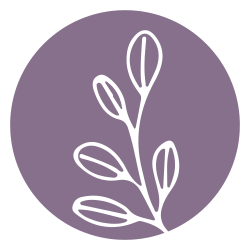Memory boosters: sleep, exercise and nutrition
by Dr. Andrea Hilborn, ND
Like money and free time, memory is something we feel we can never have enough of.
As soon as we misplace our car keys, we start to wonder if our memories are going. Many of us believe we could benefit from having a stronger memory, and look to herbs and supplements to help boost our recollective power.
If there are any herbs or supplements out there that can help, I would certainly like to know. I am still in my 20s and I have to write everything down, and my husband has his own very specific memory problem; he never seems to remember about my memory deficiency.
I searched around to find out which herbs and nutrients are being advertised as memory enhancers, then cross-checked them with reliable literature to see what study results have found.
Many a substance has been recommended for memory improvement. The following have a small amount of positive evidence of memory improvement in healthy young adults: phosphatidylcholine, bacopa, sage and vinpocetine. The small amount of research means that we do not know the proper dosage to see improvements, nor do we know how safe it is to take these for an extended period of time. Choline and lecithin have both been studied as well, in elderly people, and were not observed to have any effect on memory.
Gingko biloba is one of the most widely recognized herbal remedies. Some people say that because the leaf of the ancient tree looks like a cross-section of a brain, the plant must have an affinity for our memory and cognition. It certainly has a long record of use, but apparently the fruit was used more often than the leaf. Nowadays, in North America, we generally use the leaf.
Multiple reviews have been done to examine the effect of gingko biloba on memory. If the plant has any effect at all, it is not a dramatic one. It may be that the diversity of dosages and methods of preparation have obscured the herb’s benefit, but it may be that it just doesn’t have much of a benefit at all.
Gingko biloba may come with a risk of increased bleeding. Case reports about individuals appear to support the idea that gingko causes brain bleeds, nose bleeds and internal bleeds of all kinds, but larger reviews that include thousands of people show no increased risk of bleeding between those taking gingko and those not taking it. I take the precautionary approach, advising anyone with a bleeding disorder or entering surgery not to take it.
There does not appear to be a magic bullet for upping the ability to remember.
Some simple nutrition changes, however, may be helpful.
Eat breakfast. The effects of skipping or eating breakfast have mostly been studied in schoolchildren but the effects are consistent. Eating breakfast produces better performance on multiple tests of cognition, including memory. Some people who don’t eat breakfast find that they aren’t hungry and even feel nauseous in the morning. You can gradually overcome this sensation by regularly eating breakfast at the same time each day. Be sure to eat before drinking any coffee.
Reduce your fructose intake. Fructose is found in large quantities in candy, syrup and pop. Some researchers suggest that a high-fructose diet promotes cognitive decline because of the poor performance of rats on a high-fructose diet. We eat a lot of this stuff. Apparently in the US, 4% of children eat syrup every day.
For future generations, we need to ensure as a society that pregnant moms and infants get optimal nutrition because gestation and infancy appear to be a critical time for the development of our ability to remember.
I wish I had better news to convey, but I’m back to recommending the old standbys: sleep, exercise and nutrition. At least it’s easy to remember those three simple cures.
